How The Independent’s correspondents are covering Russia’s invasion of Ukraine on the ground
From dramatic evacuation attempts to desperate refugee crossings, our correspondents have provided unique and hard-hitting coverage of Vladimir Putin’s war, writes Kieran Guilbert

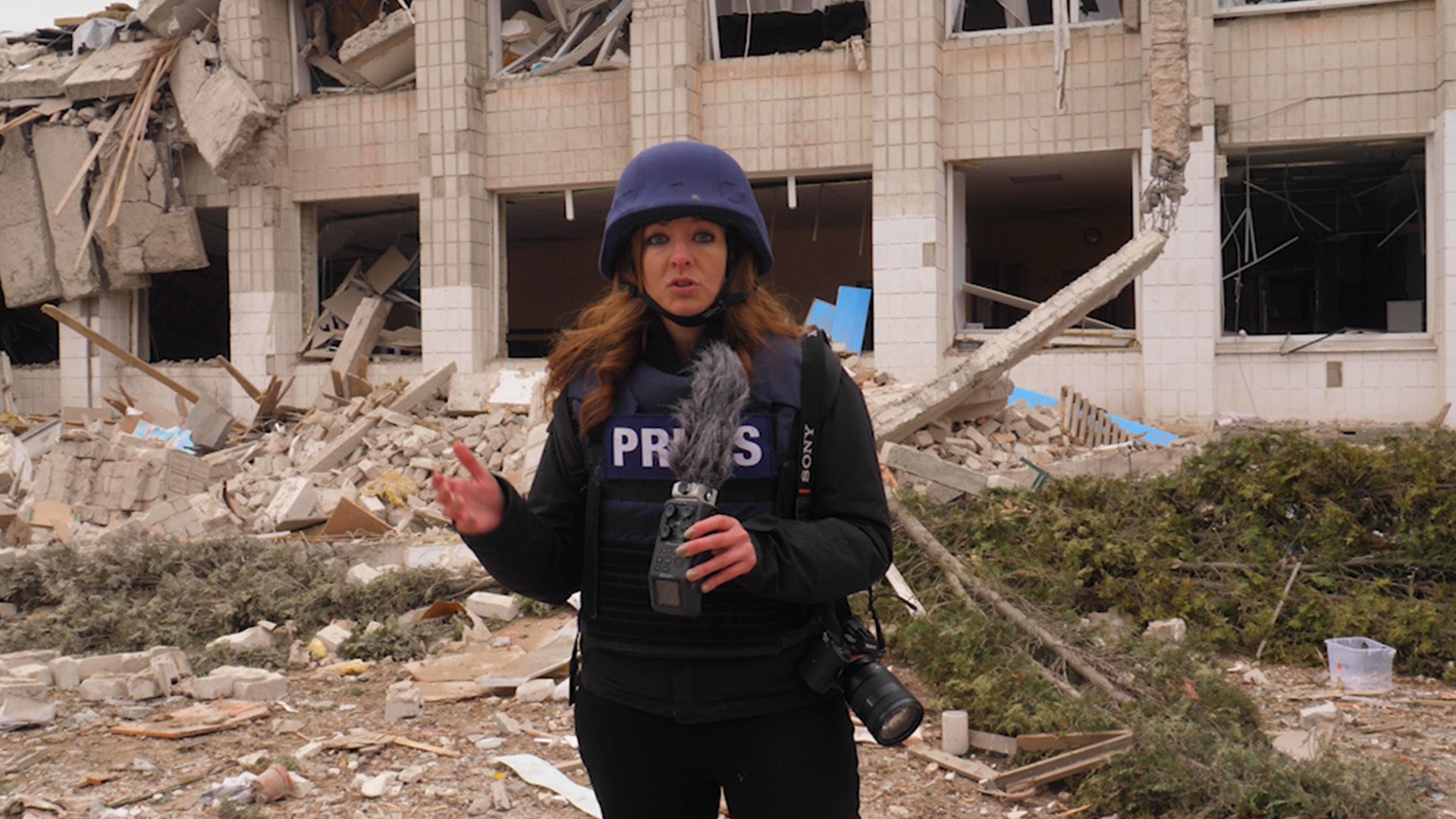
Just before midnight on Wednesday 23 February, our world affairs editor, Kim Sengupta, phoned the newsdesk from Kyiv to inform us of reports that the invasion would start at 4am.
The intel was correct, and so just over a day later, Kim was interviewing Ukrainian soldiers who had been deployed to nearby towns to defend the capital from approaching Russian forces.
One of them, Sergeant Taras, was bloodied and battered – with a cut on his head and bandaged hand – but still smiled as he detailed how they checked the initial Russian assault.
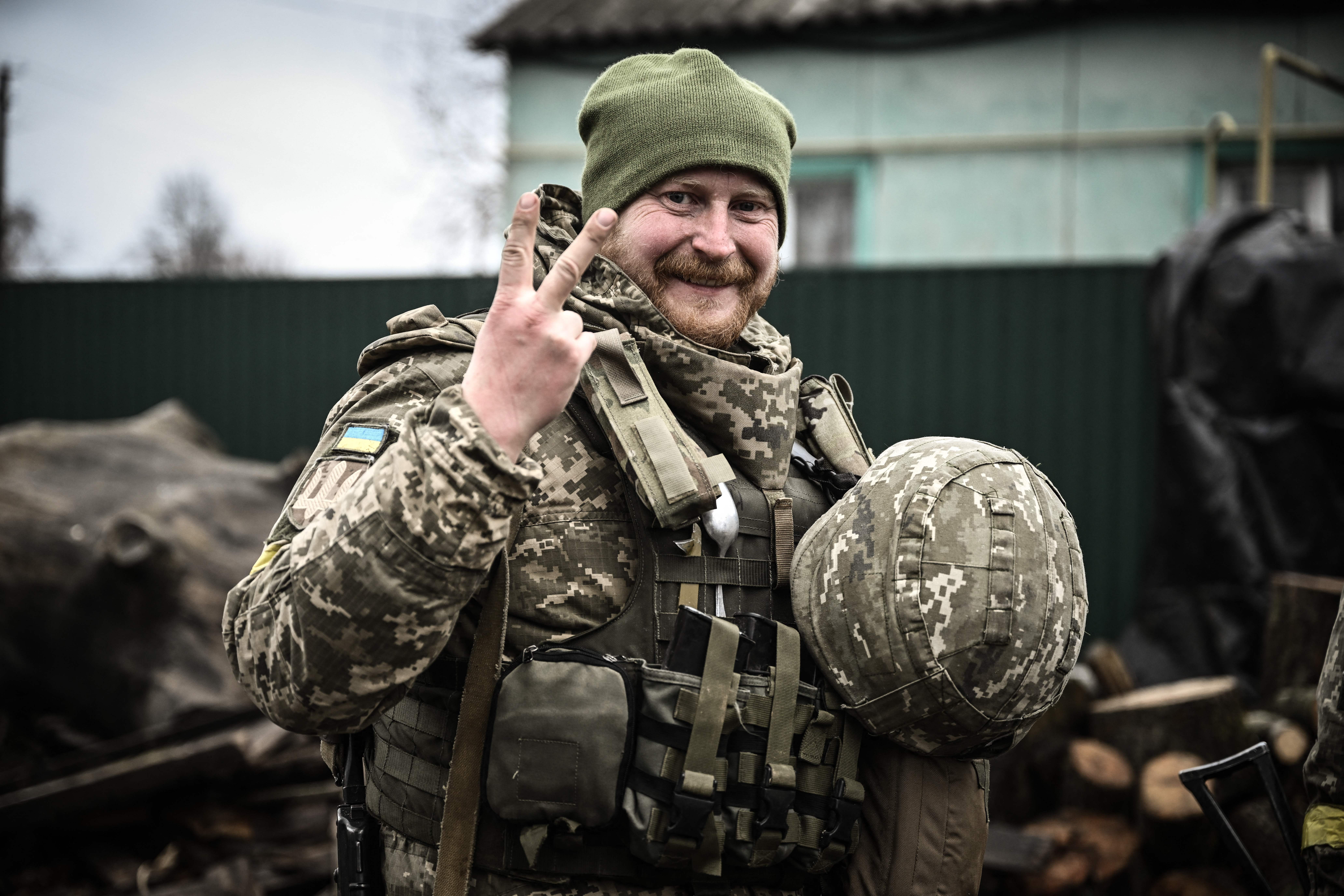
“We stopped them for a while, but this is not going to end soon. They’ll want to keep coming, we need to keep fighting them,” the sergeant told Kim on the second day of the invasion. As the brutal conflict enters its third week, that warning feels as relevant today as it did then.
While thousands of people fled the capital, others bunkered down with their families and some civilian volunteers armed themselves – prepared to fight if needed.
Galyna Kucherenko, 72, was adamant that she and her family would not leave Kyiv but stay to help the war effort. “No! We need them for making Molotov cocktails to welcome the Russians!” the grandmother said, heeding a call by Ukraine’s defence ministry to prepare Molotovs.
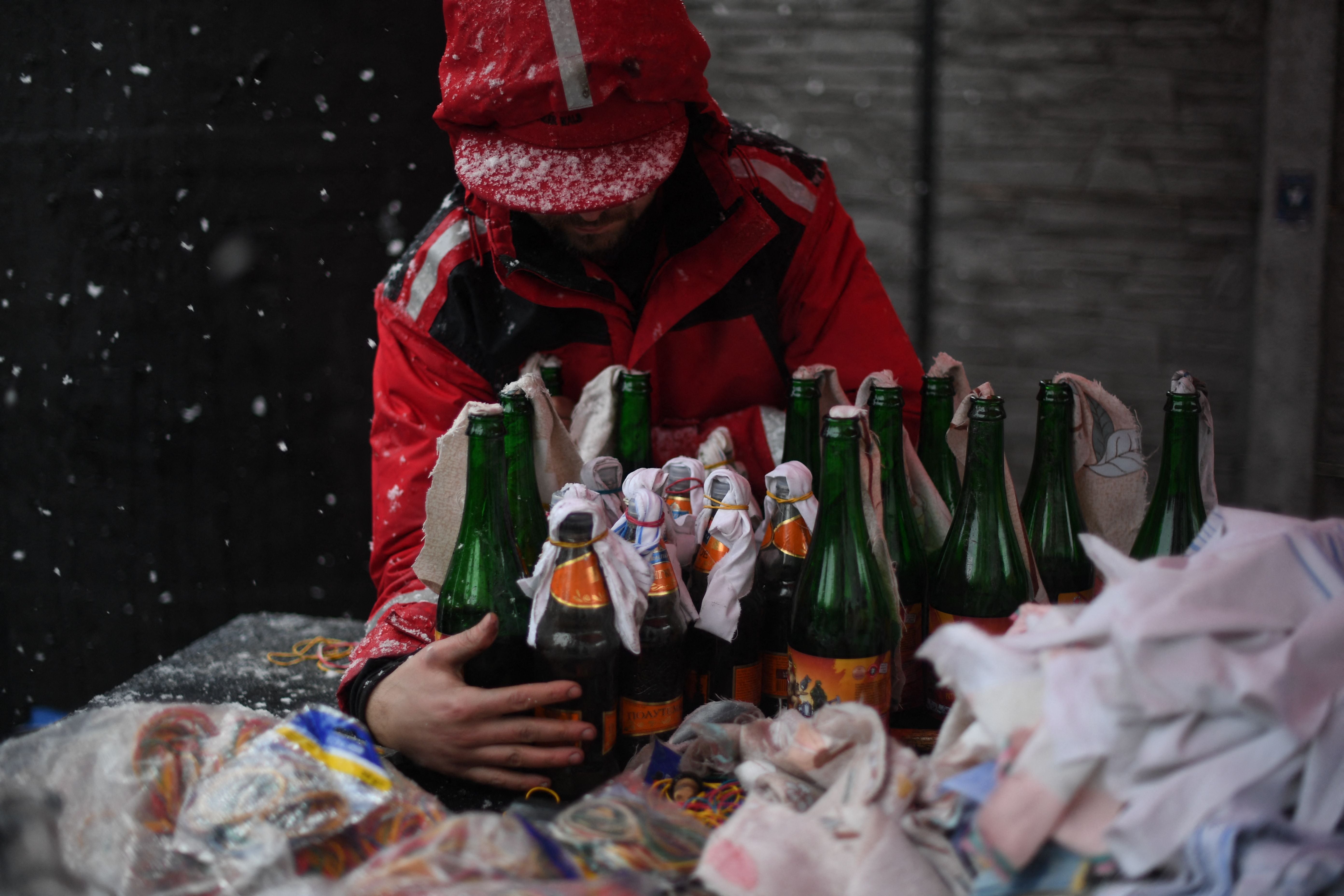
Meanwhile, our international correspondent, Bel Trew, flew to Poland and travelled to the country’s eastern border, where she reported on the initial exodus of people escaping war – filming a piece for The Independent’s On The Ground series before heading into western Ukraine.
In western cities including Lviv, local communities have come together in myriad ways to support those fleeing – from the actors who turned their theatre into a shelter to the tech gurus who are building websites and apps to provide Airbnb and Uber-like services for free.
As Putin’s onslaught intensified, Bel reported from Zhytomyr where shelling has decimated several homes, a school and the maternity ward of the city’s main hospital – leaving staff to deliver babies in a bunker underground.
“Why the kids? Why the schools? What is the point of this?” one man, Alexander, told Bel between sobs as he cleared away debris from a crater where several homes once stood.
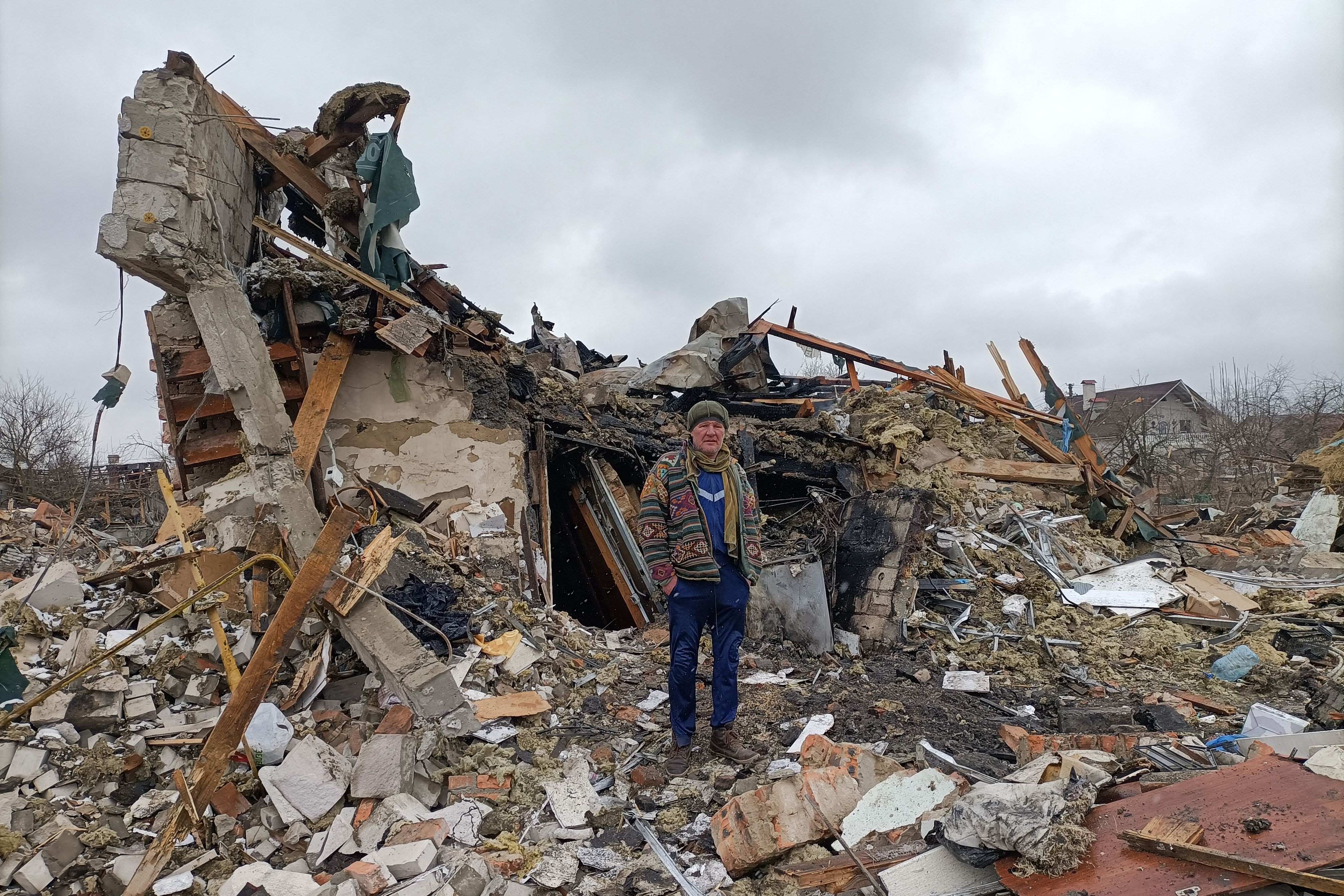
Less than 100 miles away, Kim covered the desperate effort to evacuate civilians from Irpin, a town on the outskirts of Kyiv that has been besieged and bombarded by Russian forces.
Striking photos showed families crossing a destroyed bridge to escape, while Kim witnessed shellfire that sent people scrambling out of evacuation buses and missile strikes that set cars ablaze. Several civilians, including two children, died that day while trying to reach safety.
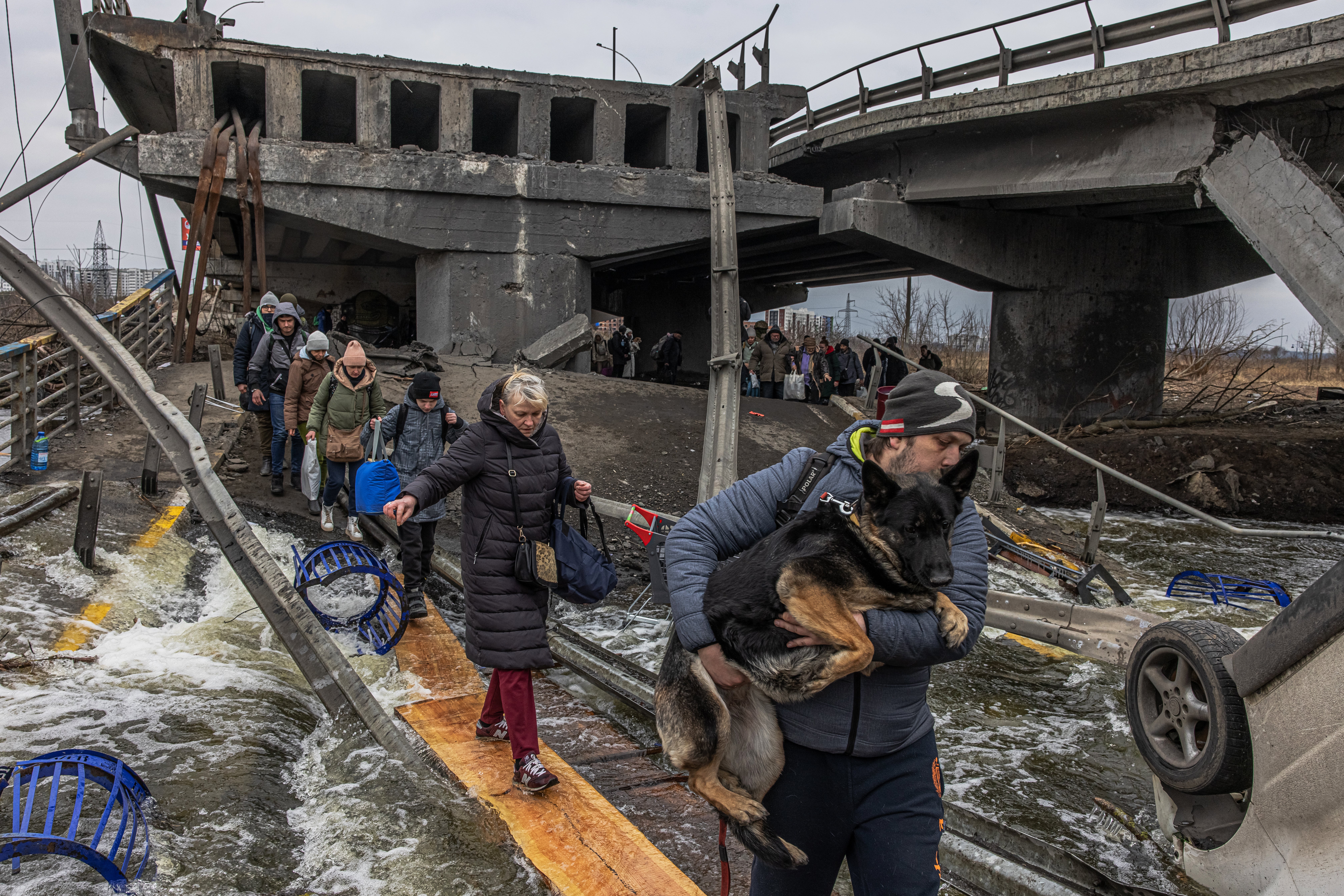
More than two million people have fled Ukraine, making this not only the biggest ground war but also the largest refugee crisis in Europe since the Second World War, and our journalists have reported on how neighbouring nations including Hungary, Romania and Poland are responding.
On a trip to the Hungarian border town of Zahony, international correspondent Borzou Daragahi observed the warm welcome in a country that has shut out asylum seekers for many years, amid underlying concerns that this initial hospitality could be short-lived.
In Poland, campaigns editor David Cohen spoke to several people who had fled, as part of The Independent’s Refugees Welcome campaign. Among them were women and children who did not know when – or if – they would ever see their husbands and fathers again.
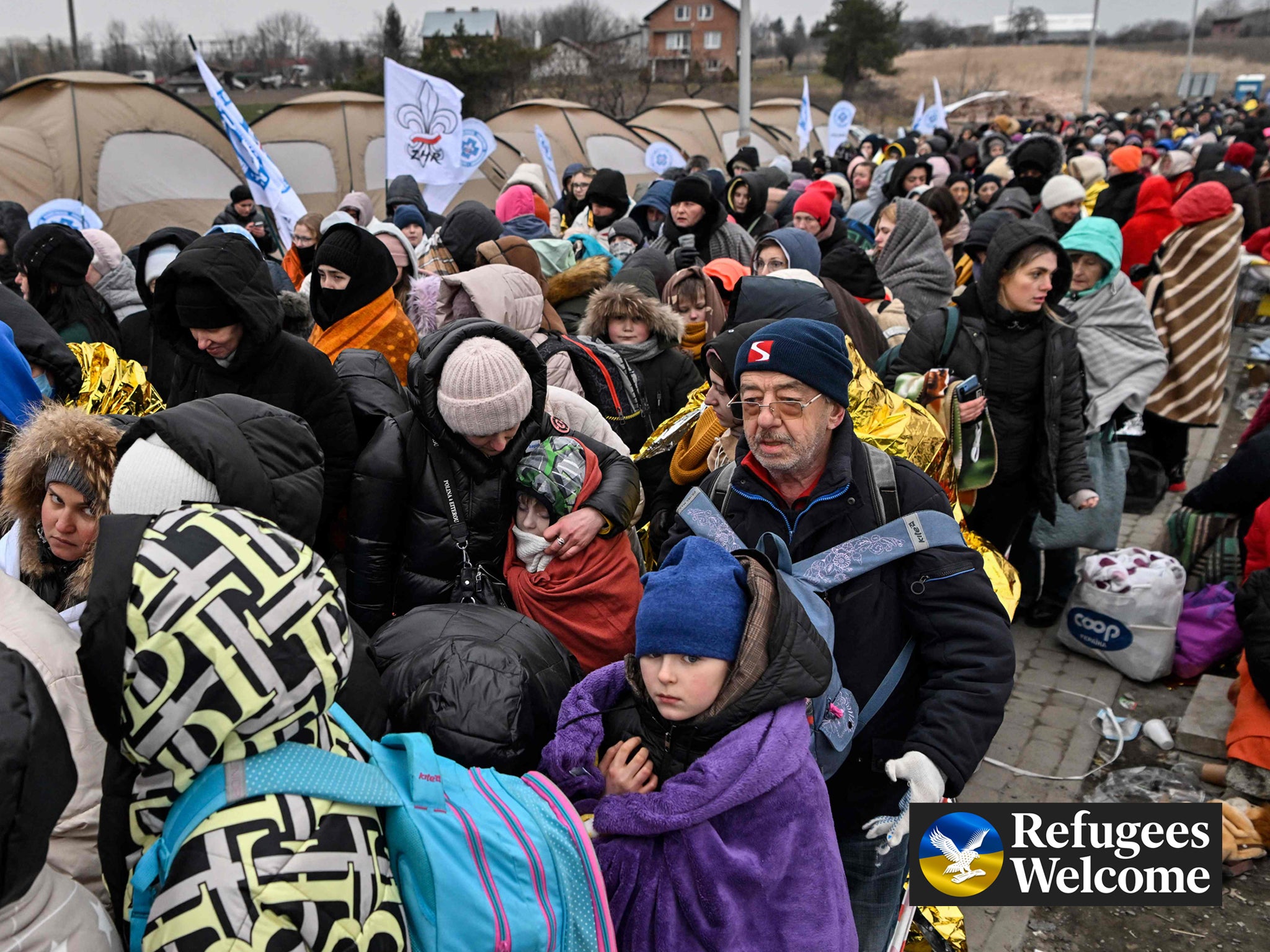
Yet amid the desperation, destruction and death, inspiring accounts of Ukrainian resistance and solidarity continue to be broadcast around the world - and our correspondents in the country have remarked on the kindness of strangers in these most trying of times.
In Lviv last week, a family of four allowed Bel to use their high-speed internet connection to file her latest dispatch. As she went to leave, the two boys gave her a drawing they had done of a plane bearing the Ukrainian flag surrounded by blue and yellow confetti and flowers.
“With love from Ukraine,” the drawing read. “It’s so you remember us,” the family added.
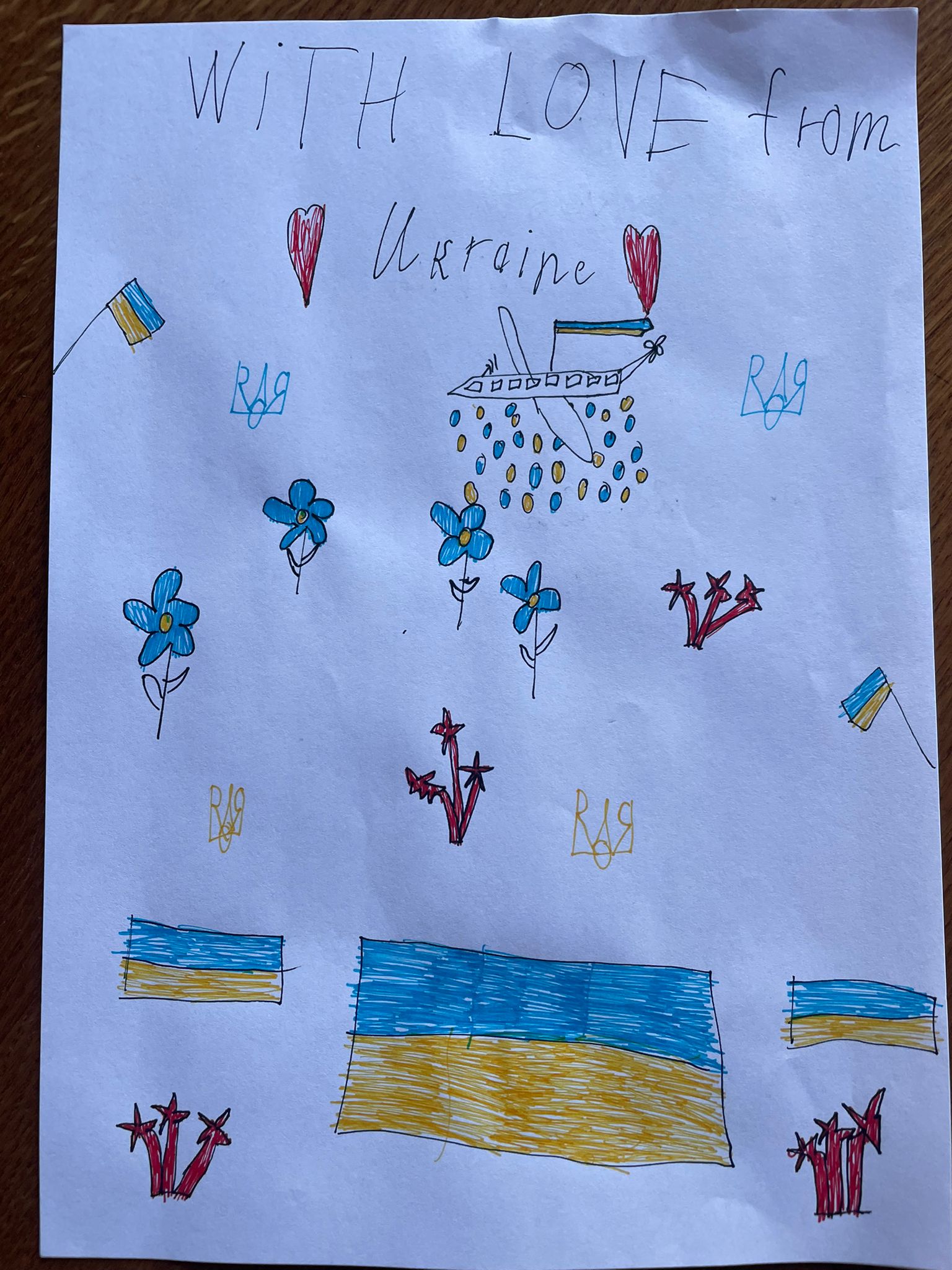
Yours,
Kieran Guilbert
Deputy international editor
The Independent has a proud history of campaigning for the rights of the most vulnerable, and we first ran our Refugees Welcome campaign during the war in Syria in 2015. Now, as we renew our campaign and launch this petition in the wake of the unfolding Ukrainian crisis, we are calling on the government to go further and faster to ensure help is delivered. To find out more about our Refugees Welcome campaign, click here. To sign the petition click here. If you would like to donate then please click here for our GoFundMe page.






Join our commenting forum
Join thought-provoking conversations, follow other Independent readers and see their replies
Comments